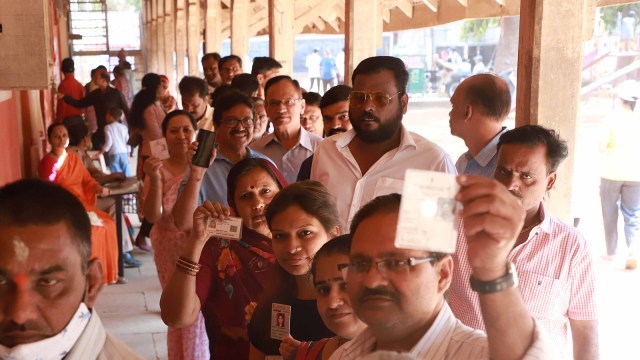Even as a five-judge bench of the Supreme Court struck down the electoral bonds scheme as unconstitutional on Thursday, it saved one aspect of the challenge for another day and a larger bench – the issue of the government using the money Bill route to bring in the laws that introduced the electoral bonds.

In his opinion in the electoral bonds ruling, Justice Sanjiv Khanna wrote, “The question of constitutional validity of the scheme and the amendments introduced by the Finance Act, 2017 are being examined by us. The question of introducing these amendments through a money Bill under Article 110 of the Constitution is not being examined by us. The scope of Article 110 of the Constitution has been referred to a seven-judge Bench and is sub-judice.”
Story continues below this ad
“Further, a batch of petitions challenging the amendments to the Foreign Contribution Regulation Act, 2010 by the Finance Acts of 2016 and 2018 are pending. The challenge to the said amendments is not being decided by us,” Justice Khanna wrote.
The fate of at least three other key legislation – two of which have been upheld by the Supreme Court – also hangs in the balance. The Supreme Court has upheld stringent amendments made to the Prevention of Money Laundering Act (PMLA) in 2022 and the Aadhaar Act in 2018. These laws could still be struck down if the court decides that they were enacted through improper procedure.
The pleas challenging the constitutionality of the Tribunals Reforms Act, also introduced as a money Bill in 2017, is pending before the apex court.
Article 110 of the Constitution deals with money Bills. A bill, which in the opinion of the Lok Sabha Speaker deals with taxation or the appropriation of public funds – in the Consolidated Fund of India or the Contingency Fund – is considered a money Bill.
Story continues below this ad
A key difference between a money Bill and an ordinary Bill is that it need not be passed by the Rajya Sabha. The Finance Act, which brings in the annual Budget, is a money Bill.
The NDA government tested the money Bill route in its first term, when cobbling up the numbers in the Rajya Sabha was a cause of concern for it, especially for contentious legislation. As the Opposition had higher numbers in the Rajya Sabha then, some legislation, including the Aadhaar Act, may not have been passed had they not been introduced as money Bills.
In 2017, the government also introduced Tribunals Reforms Act as part of the Finance Act – a money Bill. While hearing a challenge to the changes made in service conditions of tribunal heads, the Supreme Court had referred the money Bill issue to a larger bench.
The government argues that constitutionally the Speaker’s decision is final on certifying a Bill as money Bill and the court cannot review the Speaker’s decision. However, petitioners have argued before the Supreme Court that no constitutional authority can have unchecked powers.
Story continues below this ad
The lone dissenter in the five-judge bench that upheld Aadhaar, Chief Justice of India D Y Chandrachud, had termed the government’s use of money Bill route a “subterfuge” and “fraud on the Constitution”.









